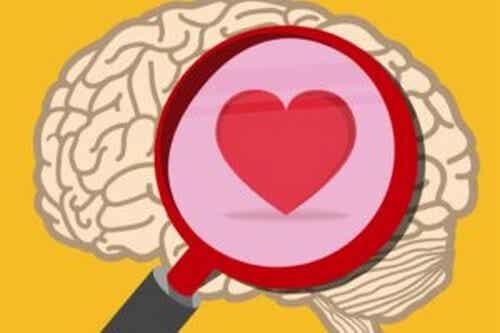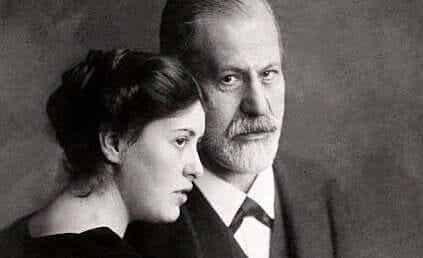"I am here for you, I support you and I understand you". Few things comfort us like receiving emotional support. Yet, ultimately, we still need to be able to solve our problems and face daily challenges on our own.

Written and verified by the psychologist GetPersonalGrowth.
Last update: 15 November 2021
The term "extrinsic emotional regulation" defines those situations in which a person offers us his support, in which his simple presence or his words convey inner peace, calm and well-being to us. Even the unprofessional psychological support of those around us can sometimes be addictive, so much so that we can no longer do without it.
To better understand this concept, we will take an example. We all have a friend who always comes to us when he has a problem or is having a hard time. In these moments, we do not hesitate to spend some time with him offering him our closeness and understanding. However, we have begun to notice that he comes to us more and more often.
It is possible that this friend is "addicted" to emotional support. Some people, in fact, cannot or cannot manage their emotional states without the help of others. “I don't know how to do it without you”, they tell us. While we have never denied them our help, we know that these dynamics are not entirely healthy.
Each of us must learn to manage their emotions. It is our responsibility to solve our problems and learn the right emotional regulation strategies. Relying solely on extrinsic emotional regulation is not the solution.
Why do we resort to extrinsic emotional regulation?
Extrinsic emotional regulation is a relatively new field of study. In the past, psychology has been mainly interested in studying the mechanisms by which people self-regulate their emotional states. We are social beings and it is natural for us to seek the support of others.
This model starts from Jim Coan's theory of social reference. According to this approach, the brain is under stress during isolation; vice versa, closeness with our fellow men gives us well-being.
Sharing our emotions with another person reduces the feeling of threat, giving us the resources to cope with difficulties and making us feel accepted. All this is fundamental and necessary for our survival.
What does extrinsic emotional regulation consist of?
Extrinsic emotional regulation is the process by which one person influences the emotional state of another. This is done knowingly and voluntarily in order to regulate the mood of the person in front of us.
If we go back to the initial example, we will discover that it is we who regulate the mood of that friend who is going through a bad time.
- There is no emotional contagion. We do not feel "impregnated" by the emotional state of the other person, nor is she affected by our emotional state. Rather, there is a clear desire to regulate her mood.
- There is a premeditated intention. That is to say: "I will try to make that person feel better by pointing out certain aspects, inviting him to abandon certain thoughts to adopt others".
Others can affect us emotionally in many ways (and not all of them are positive)
So far we have talked about extrinsic emotional regulation as an ideal mechanism to offer support, but other aspects are worth not neglecting. This regulation can be either positive or negative.
In other words, people can also use their influence to cause malaise or intentionally hurt. Let's imagine, for example, that our interlocutor does not hesitate to tell us «well, if you are sick, I am worse», «you always have the same problem, it is clear that you do not know how to keep the reins of your life. These comments will negatively affect our mood.
The most complex aspect of negative extrinsic emotional regulation is that it is not always evident. Unfortunately, some people hurt and weaken us in such a subtle way that we don't even notice.
It is not good to depend solely on external emotional support
Breaking up with your partner, losing your job, losing a family member, failing a project… We all have difficult times when we need extrinsic (external) emotional support.
But to enjoy real benefits and overcome daily difficulties, hurts and obstacles, internal emotional regulation must be put in place. If we don't manage our emotions and always wait for others to do it for us, we will be prisoners of addiction.
Waiting for others to reduce our malaise is a bit selfish. We can benefit from it, but in the end it will be like putting a warm cloth on a wound: it calms the pain, but the wound is still there, open and bleeding.
It is our responsibility to manage and deal with everyday emotions, both positive and negative. External support is a pillar in the life of every human being, this is true. And it is right that you turn to others from time to time.
However, we cannot and must not get used to this. Emotional maturity requires a certain amount of independence that allows you to resolve and overcome your pain.


























